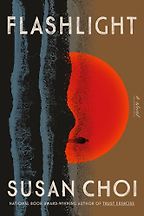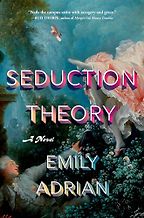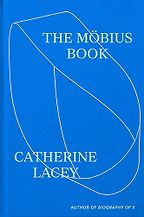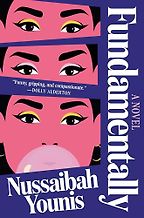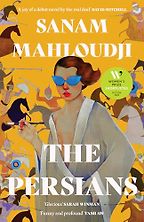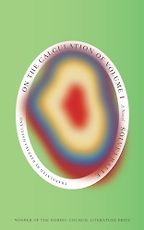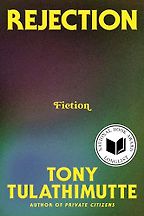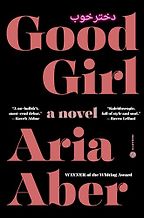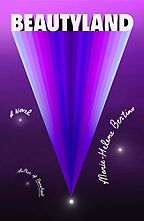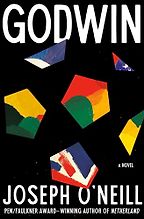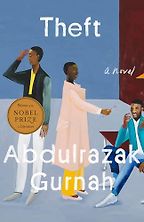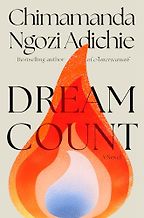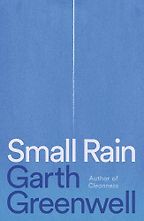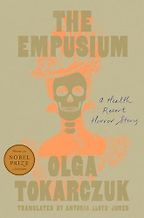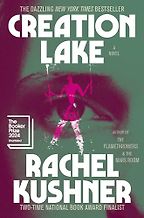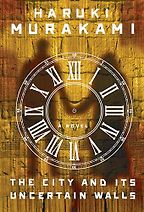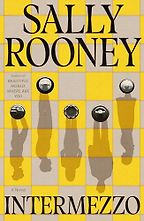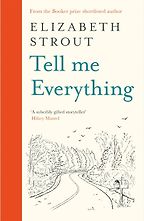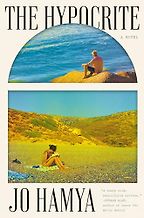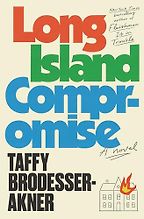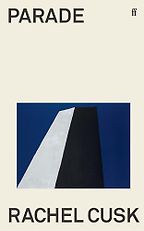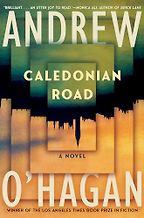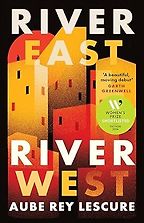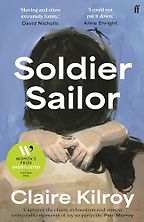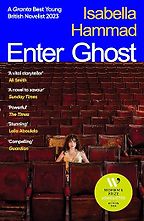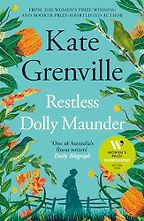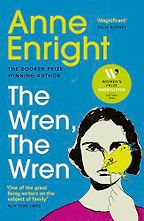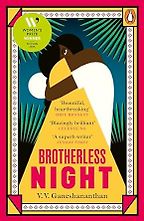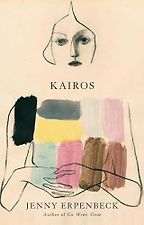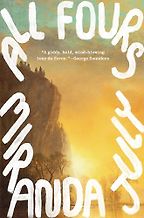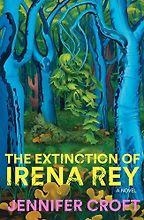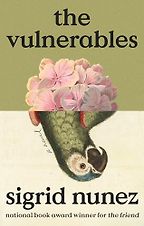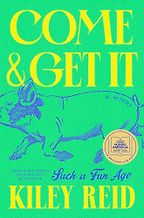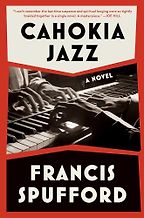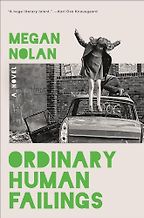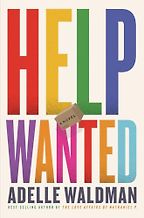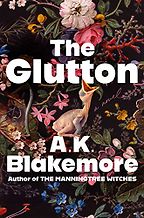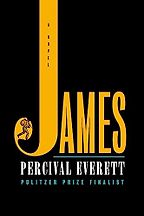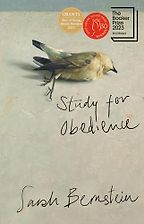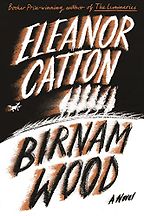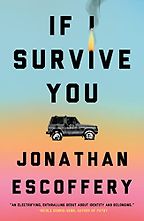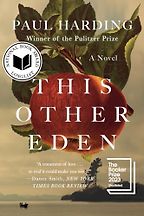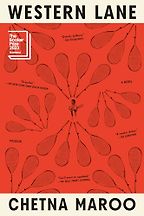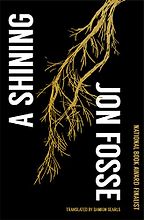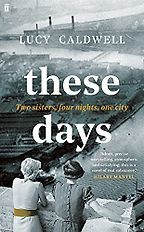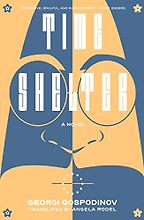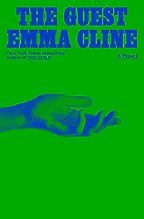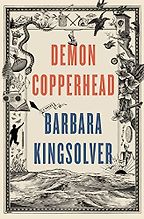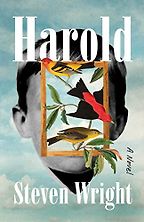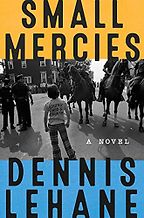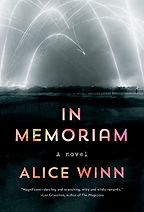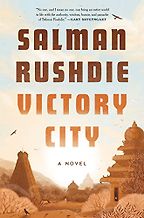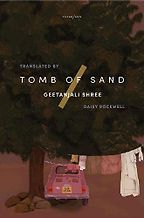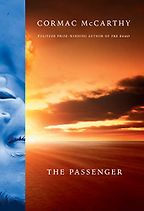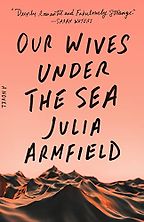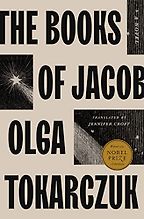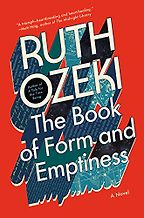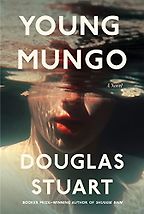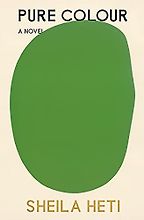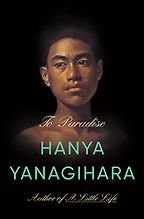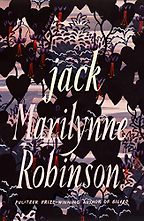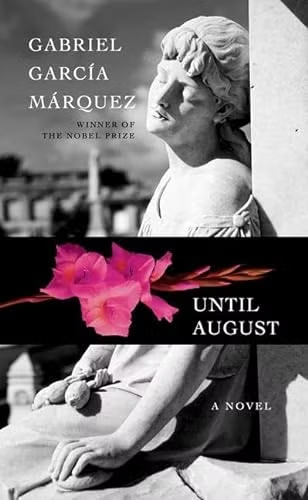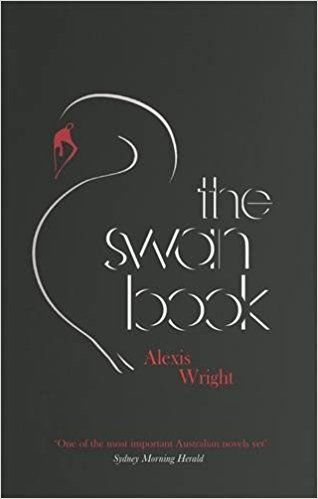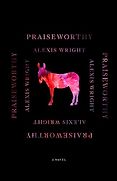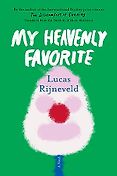New Literary Fiction
Last updated: June 24, 2025
Keep up to date with the best new releases in literary fiction here on Five Books. Our deputy editor Cal Flyn, an award-winning author herself, writes seasonal round-ups of the best new novels from 'literary' writers: from buzzed-about debuts to critics' darlings, new work from the globally recognised greats and beloved sleeper hits from writers' writers. We love it all here at Five Books.
We also cover the Booker Prize and International Booker Prize shortlists in depth each year—ensuring that we have all the info on the new literary novels on everyone's lips that year—as well as highlighting the finalists of other notable fiction prizes as the year goes on. Be sure to bookmark this page to stay up to date with all that's new in literary fiction.
Heart Lamp: Selected Stories
by Banu Mushtaq, translated by Deepa Bhasthi
🏆 Winner of the 2025 International Booker Prize
“The way these women keep colliding with both tradition and modernity is so acutely observed. Anyone—of any gender or age or country—can’t help but relate to their struggles between past and present. We’re all doing that.” Read more...
The Best Fiction Books: The 2025 International Booker Prize
Anton Hur, Novelist
“It is indeed a skewering of the contemporary millennial lifestyle as it pertains to digital nomads in the gig economy—they’re even front-end engineers, the ‘superficial layer’ of tech—but I really hope that when people read this very entertaining novel that they also take note of the sharp critiques of privilege throughout.” Read more...
The Best Fiction Books: The 2025 International Booker Prize
Anton Hur, Novelist
“This is a novel that is written from the perspective of a rescue boat dispatcher who fails to dispatch a rescue team for a group of migrants who subsequently sink to their deaths. This book will hopefully disturb you and make you question why you feel so disturbed. It is a short book that is nevertheless full of horror and rage and guilt.” Read more...
The Best Fiction Books: The 2025 International Booker Prize
Anton Hur, Novelist
“I thought, okay, it will be a very serious book about fundamentalism and how it affects young girls like Shamima Begum, groomed young girls who were radicalised and went out to join ISIS. And it is about those girls. But, oh my God, this book is so funny. How she’s managed to make that subject funny and light, I don’t know.” Read more...
The Best Novels: The 2025 Women’s Prize for Fiction
Kit de Waal, Novelist
“It’s very funny, and it’s so unexpected. When I picked up the book, I didn’t know anything about it. I didn’t want to read any blurb or reviews, I just came to the work very clean. So I thought, when I picked this up, that it would be a historical novel about the Persians. I expected a different country, a different time, a different culture. But then this opens and it’s like the Kardashians of Aspen. It’s told from lots of different points of view, of women within this family. And it’s a book about who they are now, now they’ve lost their money, their clout. How can they negotiate America as immigrants—and not powerful immigrants either.” Read more...
The Best Novels: The 2025 Women’s Prize for Fiction
Kit de Waal, Novelist
On the Calculation of Volume: Book I
by Solvej Balle, translated by Barbara J. Haveland
“This is a tricky book to summarise. Basically, an antique book dealer finds herself trapped within a single repeating day and she slowly figures out what she can take from each repeating day and what she cannot. It is a very quiet book that conveys an intense sense of time being lived.” Read more...
The Best Fiction Books: The 2025 International Booker Prize
Anton Hur, Novelist
“A collection of seven linked stories from the author of the award-winning Private Citizens (‘the first great Millennial novel,’ according to New York magazine). Expect nihilism, tragicomedy, and provocation after provocation.” Read more...
Cal Flyn, Five Books Editor
“It perfectly captured this time in a woman’s life, or this woman’s life. She’s the daughter of an Afghan refugee in Berlin, and she’s ashamed of it. Anyone that has had shame in their lives, especially shame related to your identity, will really identify with this book. There’s a section in it where she really fancies this guy, a very unsuitable guy, and—as we all do—she is trying to be cool, trying to say the right thing, to sit right, eat right, smoke right. It has really unusual sentence structures—the way they start. It’s quite extraordinary, really. So well done.” Read more...
The Best Novels: The 2025 Women’s Prize for Fiction
Kit de Waal, Novelist
“In Marie-Helene Bertino’s Beautyland, a girl believes herself to be alien sent to study humans, and sends dispatches home to her people via fax. A bittersweet, heart-warming read.” Read more...
Cal Flyn, Five Books Editor
“In Joseph O’Neill’s Godwin, previously longlisted for the Booker, two half-brothers search for an African teenager they believe could be the next Lionel Messi.” Read more...
Cal Flyn, Five Books Editor
“Abdulrazak Gurnah’s Theft follows three young Tanzanians as they come of age; an advance review in Publishers Weekly declared it ‘at once culturally specific and emotionally universal.'” Read more...
Cal Flyn, Five Books Editor
Dream Count
by Chimamanda Ngozi Adichie
The lives of four interconnected women – their loves, their ambitions, their disappointments, their traumas – are scrutinised in Chimamanda Ngozi Adichie’s dazzling fourth novel. Set across three continents and a sprawling cast of characters, Dream Count is a polyphonic work that engages with a range of charged themes, from the diaspora experience to sexual assault and the politics of female bodies. It is rigorously, bracingly contemporary – and yet it has a timelessness that characterises all great fiction.
“In Small Rain, a poet is struck down with a rare disease and finds himself confined to an intensive care unit. The Chicago Tribune described it as ‘one of the most profound reading experiences I’ve ever had,” Read more...
Cal Flyn, Five Books Editor
The Empusium: A Health Resort Horror Story
by Olga Tokarczuk, translated by Antonia Lloyd-Jones
“The Nobel Prize-winner returns with what has been described variously as ‘a satirical take’ and ‘a feminist twist’ on Thomas Mann’s The Magic Mountain. In Tokarczuk’s version, an engineering student retires to a sanatorium for tuberculosis sufferers, in Silesia, 1913. Every evening, the residents gather to drink the local hallucinogenic liquor and debate life, the universe, and everything. But there’s something unsettling going on in the woods outside the walls.” Read more...
Cal Flyn, Five Books Editor
“This book is interesting because it gets into ideas of primeval thinking. The conclusions of the book are very unexpected. There’s a whole section on cave frequencies, ancient voices and deep knowledge, and how our perception of reality is shaped by our ancestry and how we think about the past. It is done through an interesting device. And it takes turns that I would never have anticipated.” Read more...
The Best Novels of 2024: The Booker Prize Shortlist
Nitin Sawhney, Musicians, Music Critics & Scholar
“It’s about a teenage boy whose girlfriend mysteriously disappears. He never gets over it, and finally finds her working in a dream library in a shadowy parallel world. But she doesn’t remember him at all. Expect magical realism, dream logic, and plenty of Easter Egg surprises for longtime Murakami fans.” Read more...
Cal Flyn, Five Books Editor
“Every Rooney book is a major publishing event, and this latest offering—which centres on the fraught relationship between two Irish brothers—has received rave reviews almost across the board. The Guardian said it was ‘perfect – truly wonderful – a tender, funny page-turner about the derangements of grief, and Rooney’s richest treatment yet of messy romantic entanglements.'” Read more...
Cal Flyn, Five Books Editor
“This is a book about small people in a small town. It’s a celebration of ordinariness. It’s certainly about inner turmoil, coming to terms with ageing, and coming to terms with history—you know: your history, my history, everyone’s history and how it affects us. It’s also a sort of love story and a sort of murder mystery. I mean, it’s everything! And yet it’s so gentle.” Read more...
The Best Novels: The 2025 Women’s Prize for Fiction
Kit de Waal, Novelist
“This one jumped out at me: it centres on the relationship between a noted novelist and his playwright daughter, as she presents a new drama written by her about the period they spent together in Sicily a decade earlier. It is, essentially, an extended study of ethical grey areas and the manner by which the sense of moral correctness shifts from generation to generation.” Read more...
Cal Flyn, Five Books Editor
“Long Island Compromise is a doorstopper of a novel with a huge cast of characters. It unpicks the long lasting consequences of the 1980s kidnapping of a wealthy businessman, as well as—more broadly—the story of his Jewish-American family and their pursuit of financial and social success. Seems destined for the bestseller lists.” Read more...
Cal Flyn, Five Books Editor
“Slowly, Cusk has been stripping away the layers of the novel—starting with plot, now character—to reveal its fundamental mechanisms. And so, though Parade is far from a light beach read to throw in your carry-on case as an afterthought, it’s certainly a notable new novel that pushes at the very bounds of what it means to write fiction.” Read more...
Cal Flyn, Five Books Editor
“In Caledonian Road by Andrew O’Hagan, everything is connected in a teeming, gripping, horrifying panorama of British society. In the tradition of Fielding, Dickens, and Orwell himself, the novelist gets everywhere: slipping into the Old Bailey, inviting himself to the polo, sharing a Mayfair magnum while taking notes. And, true to that tradition, Caledonian Road is absolutely contemporary: it gets to work in a world of branding and media spin, of hacking and cover-ups. It asks where the money is coming from, and who knows what, and how chasms of inequality are widening between people passing on the same London pavement” Read more...
The Best Political Novels of 2024: The Orwell Prize for Fiction
“Alva is one of the protagonists. She’s a moody, rebellious teenager who is starting to pull away from her mother, a white American woman. Alva has a dual identity—she has a Chinese father who she doesn’t know, and an American mother. Through Lu Fang, the Chinese businessman who Alva’s mother marries, we get a sweep of Chinese history, from the Cultural Revolution onwards. So it’s a book that tackles big themes and a lot of history, but always through a propulsive narrative that keeps you turning the pages.” Read more...
Recent Fiction Highlights: The 2024 Women’s Prize Shortlist
Monica Ali, Novelist
“It’s a gut-punch of a book, which provokes so many emotions in the reader: sorrow, rage, tenderness, laughter—it’s often funny, you know. The whole range. It balances the light and the dark. And it’s suffused with love…The ending is almost metaphysical, it’s philosophical. You stand back and think about the big picture of life and this eternal cycle that we’re in, generation after generation. It’s uplifting, actually.” Read more...
Recent Fiction Highlights: The 2024 Women’s Prize Shortlist
Monica Ali, Novelist
“It’s a very accomplished piece of storytelling. It weaves history, politics, and family with a profound meditation on the purpose of art. It’s very nuanced, multi-layered, gorgeously written. And it’s original—because it plays with form. Parts of the book are written as a script, fo example. And it asks deep questions about the purpose of art: whether it can be a form of resistance; whether a play written centuries ago can resonate with the lives of people in the West Bank in the present day. It’s very subtle, its outlook. Very humane. It’s generous, compassionate. It’s a book you won’t necessarily romp through. But you sink into it, and then you really reap the rewards. There’s a lot of food for thought.” Read more...
Recent Fiction Highlights: The 2024 Women’s Prize Shortlist
Monica Ali, Novelist
“It’s a historical novel that begins on a sheep farm in New South Wales in the 1880s. It goes right through until the 1950s. In Dolly we have a character who constantly fights against the constraints placed on her as a woman in a man’s world. And she pays a really high price for her nonconformity. She builds a business, loses everything, is forced to start over. But she never loses her fighting spirit. Grenville’s prose is just immaculate: simultaneously plain and poetic. She conjures up those very harsh and beautiful landscapes so perfectly. It’s a book that transports you to another time and place, and all of us judges fell in love with Dolly—we were there for the pain and the beauty of all Dolly’s struggles.” Read more...
Recent Fiction Highlights: The 2024 Women’s Prize Shortlist
Monica Ali, Novelist
“It’s an intergenerational saga set in Ireland, exploring the really messy, fraught relationship between Carmel and her daughter Nell. They’ve moved from being a very close single-mother, only-daughter unit to having quite a fractured relationship. It also encompasses the long shadow thrown over their family by Carmel’s father, Phil, who is now deceased but was a famous poet. Through Phil, Anne Enright raises a lot of questions about art. For instance: is it possible to separate the art and the artist? If the person who has produced the art has done terrible things in their life, does that affect how you view that art?” Read more...
Recent Fiction Highlights: The 2024 Women’s Prize Shortlist
Monica Ali, Novelist
“Once you’ve read this book, you’re never going to forget it. It’s absolutely searing, deeply moving. And it’s an utterly compelling piece of storytelling. There have been quite a few novels recently that have looked at the Sri Lankan civil war. This novel is unique in the way that it centres women’s experience of the war. She uses that lens of women’s experience to examine the impact on families, on the war of values that can tear families apart as much as the violence. And she’s unflinching in her commitment to complexity and nuanced and clear-eyed moral scrutiny of all sides of the conflict…It’s a novel that rewards multiple readings as well, because it’s packed with historical detail. It ranges in scale from the intimate to the epic.” Read more...
Recent Fiction Highlights: The 2024 Women’s Prize Shortlist
Monica Ali, Novelist
Kairos
by Jenny Erpenbeck, translated by Michael Hofmann
🏆 Winner of the 2024 International Booker Prize
“The story unfolds around a disturbing affair between a 19-year-old student and a 53-year-old married writer in East Berlin. Initially there is intense attraction. They both love music and art. He is a kind of mentor to her. They meet in secret, it’s very dramatic. It starts with love and passion, but it’s at least as much about power, art and culture—a different kind of obsession. The discussions of music, poetry and theatre take place alongside the political upheavals. It’s a novel about the weight of history, how it impinges on our lives.” Read more...
The Best Novels in Translation: The 2024 International Booker Prize Shortlist
Eleanor Wachtel, Broadcaster
“It is so unusual, I’ve never read a book like it. The concept of the book and the way it’s a woman speaking about a distinct time in a woman’s life—it’s like: ‘Who am I? What do I want? Am I a mum, doing small town things? Am I more than that? Do I want an adventure? Should I completely derail my life? It’s chock, chock full of life. Literally bursting with life.” Read more...
The Best Novels: The 2025 Women’s Prize for Fiction
Kit de Waal, Novelist
“In The Extinction of Irena Rey, eight translators arrive at a house deep in the primeval forest ready to translate a book by a revered Polish author. Shortly after they arrive, the writer the have come to pay tribute to disappears. It’s a strange and very funny book that offers fascinating insight into the world of the literary translator.” Read more...
Cal Flyn, Five Books Editor
“Sigrid Nunez’s new novel The Vulnerables is set in Covid-era New York, in which an unnamed female writer moves into a friend-of-a-friend’s apartment to look after their pet macaw, Eureka. This is, technically, her second ‘pandemic novel,’ after Salvation City (2010), which is set during a fictional flu outbreak. Previously Nunez has commented how, when the 2020 lockdowns came into effect, she had a sense of eerie premonition—’When all of this started, I thought, ‘Wait, didn’t I write a book about it?'” Read more...
Cal Flyn, Five Books Editor
“When a visiting professor and journalist offers her money in exchange for the opportunity to eavesdrop on the dorm’s residents, Millie decides to take the risk and accept. Lewis’s performance makes the vivid dialogue sing. She creates unique voices for all of the major characters, complete with the perfect accents and delivery of expressions.” Read more...
“Past Five Books interviewee Francis Spufford (Red Plenty, Golden Hill) will also arrive Stateside with a new, propulsive novel that spans genre and literary fiction. Cahokia Jazz is billed as a ‘noirish detective novel’ set in an alternate 1920s America, where the Jazz Age is swinging in the grand old Mississippian city of Cahokia. In our own reality, Cahokia was an ancient indigenous settlement abandoned in the 14th century; in Cahokia Jazz, thanks to a quirk of epidemiological history, the city not only survived but thrived and now acts as the setting of a complex murder mystery set in train by the discovery of a ‘spectacularly butchered’ body on the roof of a skyscraper. It’s been out since October this side of the Atlantic, garnering rave reviews; it will be interesting to see what Americans think of their reminagined nation.” Read more...
Cal Flyn, Five Books Editor
“Ordinary Human Failings by Megan Nolan is a novel that handles trauma with honesty and care. There is no sugar-coating with virtue or easy beauty here. This is a story that employs a cleanly cinematic gaze to observe the plain disintegration of a family through a pattern of social circumstance, addiction and prejudice, egged on by the ruthlessness of 90s tabloid journalism – to give us a portrayal of a society both fractured and hopeful” Read more...
The Best Political Novels of 2024: The Orwell Prize for Fiction
“I have probably read Adelle Waldman’s sharp and perceptive Brooklyn comedy of manners The Love Affairs of Nathaniel P. half a dozen times already, so I can’t wait for her long-awaited follow-up, Help Wanted, which will be out mid-March in the US and at the end of the month in the UK. It’s been billed as ‘a humane and darkly comic workplace caper’ following the lives of those working an early morning shift at a big-box store in upstate New York.” Read more...
Cal Flyn, Five Books Editor
“The young British novelist A. K. Blakemore follows her cult hit debut The Manningtree Witches with another hard-edged historical novel, The Glutton. This new book is set during the French Revolution and is inspired by a man with an insatiable (perhaps even cannibalistic) appetite reported in an 18th-century paper. At once horrible and hallucinatory, The Glutton should appeal to fans of Ottessa Moshfegh.” Read more...
Cal Flyn, Five Books Editor
“James is obviously connected to Mark Twain’s Huckleberry Finn. It is not a retelling of that story, but in a way it’s the same universe. Percival has said himself that it’s not a correction. But is it a revisionist book? Yes, I guess it is. It’s from the perspective of Jim, or James, and we look at slavery from his perspective. We look at his incredible struggle, how his family is affected, how he has been separated from them and his struggle to reach them again. It has a revenge theme, kind of. But I guess I look at it as there being some historical catharsis, reading this book in relation to historical racism and slavery. It’s more of a cathartic narrative than a derivative one.” Read more...
The Best Novels of 2024: The Booker Prize Shortlist
Nitin Sawhney, Musicians, Music Critics & Scholar
“Praiseworthy is an environmental allegory set in a small Aboriginal town in the north of Australia, and—in true Wright style—bends time and space as it interweaves oral history, ancestral myth, and dystopian vision.” Read more...
Cal Flyn, Five Books Editor
My Heavenly Favorite: A Novel
by Lucas Rijneveld, translated by Michele Hutchison
“My Heavenly Favourite is set in a small, religious Dutch farming community—drawing from Rijneveld’s own rural upbringing—and is narrated by a large animal vet in the wake of his criminal obsession with a farmer’s young daughter: a cowshit-splashed Lolita.“ Read more...
Cal Flyn, Five Books Editor
“And in Canada the $100,000 Scotiabank Giller Prize was won by Sarah Bernstein’s Study for Obedience, an eerie and unsettling tale of xenophobia set in an unnamed northern country, which was also shortlisted for the Booker Prize earlier in the year. The Daily Telegraph declared it ‘a beautiful, riddling tale of a woman on the fringe of a rural community’ that, though ‘philosophically opaque,’ is both ‘elegant and electric.'” Read more...
Cal Flyn, Five Books Editor
Birnam Wood: A Novel
by Eleanor Catton & Saskia Maarleveld (narrator)
☆ Shortlisted for the 2023 Orwell Prize for Political Fiction
🏆 An AudioFile Best Mystery/Suspense Audiobook of 2023
“Eleanor Catton won the Booker Prize for her novel, The Luminaries. This is very different. It’s also set in her native New Zealand, but it’s a kind of environmentalist thriller. It’s extremely witty, extremely pacey, and incredibly well crafted. It’s about the fight over a particular patch of threatened ground in rural New Zealand. A group of guerrilla gardeners wants to use it for their organic ecological project but it’s also in the sights of miners and developers. The clash between them is executed with incredible panache, wit, surprise and suspense.
This is a book which on its back cover has an endorsement from none other than Stephen King, which I think tells you about the narrative drive that Eleanor Catton achieves here. It’s enormously enjoyable and, of course, it raises all of these profound questions about who should control the land and how it can be protected from environmental degradation.”
“One of the biggest books of the season must be Eleanor Catton’s hotly anticipated third novel Birnam Wood. Pitched (somewhat unexpectedly) as a psychological thriller, it follows the members of a guerilla gardening group as they take over an abandoned farm in cautious partnership with a paranoid American billionaire with plans to build his own survivalist bunker.” Read more...
The Notable Novels of Spring 2023
Cal Flyn, Five Books Editor
“Despite its sometimes heavy subject matter—characters face poverty, racism, and tricky family dynamics—it has a ‘peacocking humor, capers, and passages of shuddering eroticism,’ said The New Yorker: Escoffery’s inventive and experimental approach to fiction ‘is marked by ingenuity.'” Read more...
The Best Novels of 2023: The Booker Prize Shortlist
Cal Flyn, Five Books Editor
“Paul Harding won the Pulitzer Prize for his 2009 debut Tinkers. This new book, his third, is a work of historical fiction inspired by the true story of Malaga, an island off the coast of Maine where former slaves made their homes alongside Irish immigrants and Civil War veterans. The self-sufficient, racially-integrated community was disbanded by the US government in 1911 when the residents were evicted in the name of public health. ‘Terrible how terribly good intentions turn out almost every time,’ as one character observes, prophetically—and sure enough this unique, rag-tag community is soon no more.” Read more...
The Best Novels of 2023: The Booker Prize Shortlist
Cal Flyn, Five Books Editor
“It’s a strange, sparse little novel about a Jain family living in Luton, England, and grieving the death of their mother. The father and youngest daughter become fixated on the sport squash, spending hours training at a local sports centre every day, driving thoughts of death from their mind with a regimen of drills, ‘ghosting’, sprints, and increasingly desperate matches.” Read more...
The Best Novels of 2023: The Booker Prize Shortlist
Cal Flyn, Five Books Editor
“Look out for the new book from Jon Fosse, A Shining, which will be released 31 October in the US and 1 November in the UK. It’s a surreal, dreamlike sequence set in the Norwegian woods, in which the narrator’s car becomes stuck in a rut on a remote track. Like his remarkable Septology, which floored me last year, the English translation is by the US writer Damian Searls—who learned Norwegian specifically to translate Fosse.” Read more...
Cal Flyn, Five Books Editor
These Days
by Lucy Caldwell
🏆 Winner of the 2023 Walter Scott Prize for historical fiction
Lucy Caldwell's fifth novel is set during the Belfast Blitz, a series of four devastating major air raids on the Northern Irish city in 1941. It's "an under-told chapter in the fiction of my city," as Caldwell reflected; researching the book felt like "a strange, intense sort of solace" during the early days of the Covid crisis. The novel focuses on two sisters, Audrey and Emma, whose comfortable middle-class existence is shattered during the attacks. While announcing the shortlist for the 2023 Walter Scott Prize for historical fiction, the judges noted that "the juxtaposition of the horrific and mundane and the authenticity of detail makes this novel an exceptional study of the terrors and consequences of war."
Time Shelter: A Novel
by Angela Rodel (translator) & Georgi Gospodinov
🏆 Winner of the 2023 International Booker Prize
A 'clinic for the past' offers a promising treatment for Alzheimer's sufferers: nostalgia. Each floor of the clinic reproduces a decade in minute detail, transporting patients back to their preferred time and the reader into European history. Time Shelter, translated by Angela Rodel, is the Bulgarian writer Georgi Gospodinov's third novel, and the first Bulgarian book to be nominated for the International Booker Prize. The judging panel said it was "an inventive, subversive and morbidly humorous novel about national identities and the seductive dangers of memory and nostalgia." Time Shelter was first published in Bulgaria in 2020.
“Set at the end of a long hot summer on Long Island, we follow a manipulative 20-something as she infiltrates the social circles of the American elite. Cline is an able storyteller and a master narrator of the inner lives of amoral young women. Another hazy, intriguing tale from the author of The Girls, her bestselling 2016 novel of cult-motivated murders in 1960s California.” Read more...
Cal Flyn, Five Books Editor
Demon Copperhead
by Barbara Kingsolver
🏆 Joint winner of the 2023 Pulitzer Prize for Fiction
🏆 Winner of the 2023 Women’s Prize for Fiction
“It was criticised as being poverty porn, but I don’t really see that. It does risk being wildly sentimental, but I kind of like that. It’s old school. It has a confident, Dickensian snap and brio, a broad, swinging-for-the-fences ambition, and it worked for me. And the ending is the complete clichéd happy ending. Yet, because it’s such an enormous book, when you get there you feel like you’ve earned the big sentimental pay-off. I really liked it. It had me welling up.” Read more...
The Best Historical Fiction Set in the American South
Xan Brooks, Novelist
“The influential American comedian Steven Wright, known for his deadpan one-liners, has also ventured into fiction for the first time with Harold, an absurdist, stream-of-consciousness novel set over a single day in a third-grade classroom, as thoughts flit through the mind of an eight-year-old boy.” Read more...
Cal Flyn, Five Books Editor
Small Mercies
by Dennis Lehane
☆ Shortlisted for the 2024 CWA Gold Dagger
Small Mercies by Dennis Lehane is the heart-breaking story of Mary Pat Fennessy, a tough 42-year-old from Southie in Boston. The book is set in 1974, after a Massachusetts court ruled that Boston's public schools should integrate segregated communities through busing, and violence broke out. Lehane's writing makes you feel like you're there, experiencing that hot summer half a century ago, as Mary Pat searches for her missing daughter.
“Alice Winn’s In Memoriam—a love story set during the tumult of the First World War—came roaring out of the starting gates and straight into the bestseller lists. In it, two heartsick schoolboys are forced to confront their feelings for one another amid the horror of war. It’s been endorsed by such literary grandees as Maggie O’Farrell and Garth Greenwell; The New York Times has also described it as both ‘devastating’ and ‘tender'” Read more...
Cal Flyn, Five Books Editor
“It’s a fantastical epic, which opens in 14th-century India and features a nine-year-old orphan selected by the goddess Parvati to be her human vessel. The Times described it as ‘a total pleasure to read, a bright burst of colour in a grey winter season,’ full of ‘lush, romantic language.'” Read more...
The Notable Novels of Spring 2023
Cal Flyn, Five Books Editor
Tomb of Sand
by Geetanjali Shree, translated by Daisy Rockwell
🏆 Winner of the 2022 International Booker Prize
“This is an extraordinary piece of fiction, but also an extraordinary piece of metafiction. It’s a novel of Partition, which is obviously a genre within from the Indian subcontinent. And at the same time, it is also none of these things, it is sui generis. It’s an extraordinarily joyful and playful and funny book, despite the fact that it begins with an 80-year-old woman who has lost her husband retiring to bed for months on end, turning to the wall and refusing to engage with life.” Read more...
The Best of World Literature: The 2022 International Booker Prize Shortlist
Frank Wynne, Translator
“The literary event of the season must surely be the publication of Cormac McCarthy’s first new books since the devastating, Pulitzer Prize-winning, post-apocalyptic The Road in 2006. McCarthy returns now with not one, but two linked novels, which together tell the story of Bobby and Alicia Western, a brother and sister pair tormented by family history—their physicist father helped invent the atom bomb. In The Passenger, salvage diver Bobby stumbles upon a murder mystery while exploring a submerged plane wreck.” Read more...
Notable New Novels of Fall 2022
Cal Flyn, Five Books Editor
“I’ve had my eye on quite a few literary debuts this season, not least Julia Armfield’s beautifully unnerving Our Wives Under the Sea. Armfield previously published a remarkable short story collection, salt slow, which saw her shortlisted for the title of Sunday Times Young Writer of the Year here in the UK, and this book underlines her reputation for finely crafted tales of the horrifying, the strange and the contemporary gothic.” Read more...
Cal Flyn, Five Books Editor
The Books of Jacob: A Novel
by Olga Tokarczuk, translated by Jennifer Croft
***🏆 A Five Books Book of the Year ***
“This book is attempting to embrace an entire world and culture, a particular period in Poland and Eastern Europe, and fold it into everything that can be known. It is a maximalist novel in that sense. There’s the theology of it, but also how market garden towns worked, how peasants lived, what beliefs people had and how those were challenged or changed. Both The Books of Jacob and A New Name are dealing with the numinous, a sense of God. But Jacob Frank is an apostate, he’s someone who is prepared to overturn centuries of his own religion in an attempt to create something new. Thanks to Olga—through Jenny—we get to witness this vast pageant of what it means to have lived through that time in Poland. It’s like a very, very large Bayeux Tapestry. But also, what it is to look back on that, given what we know now, because there are outside observers.” Read more...
The Best of World Literature: The 2022 International Booker Prize Shortlist
Frank Wynne, Translator
The Book of Form and Emptiness: A Novel
by Ruth Ozeki
🏆 Winner of the 2022 Women’s Prize for Fiction
“This book does two things really well. The first is shifting to the hallucinatory world to the context of loss and grief. Lots of people experience these sorts of things following the loss of a loved one, and that happens to Benny as well. Secondly, this is a book about books. It’s steeped in books, much of it unfolds in a library, and in a way it’s about how we create different worlds constantly. We can move between them, and they shape how we think. The boundaries between these fictional worlds and the real world is much more porous and malleable than we might appreciate.” Read more...
The best books on Hallucination
Ben Alderson-Day, Psychologist
Young Mungo
by Douglas Stuart
Young Mungo is Douglas Stuart's eagerly awaited follow-up to his Booker Prize-winning, internationally bestselling debut Shuggie Bain. It centres on a love affair between two Glaswegian men, from either side of the sectarian divide. Having come of age in a violent, homophobic community, Mungo and James find peace—and each other—in a racing pigeon loft. A Romeo and Juliet story set in 1990s Glasgow, it is a powerful and deeply moving tale of passion, poverty and toxic masculinity.
“I’m particularly excited about the February arrival of Pure Colour by Sheila Heti, surely the smartest, most erudite and exacting writer working today. Pure Colour has been billed by the publisher as ‘a galaxy of a novel’ which combines realism with surrealistic elements (at one point, the protagonist’s father moves through her as a spirit, at another she becomes a leaf), and asks the reader to consider life and death, the nature of art, and the nature of… well, nature. Unmissable.” Read more...
Cal Flyn, Five Books Editor
“Yanagihara’s new book is set in an alternate world, in which the American Civil War has produced a continent of rival territories—a Disunited States. It’s divided into three parts, each a hundred years apart and the final installment taking place in a dystopic 2093 as pandemics sweep the world. Characters appear and reappear in different guises, changing ethnicity and gender. It’s a novel of huge ambition, and one likely to arouse huge feeling and critical discussion; whatever your feelings about A Little Life, To Paradise is the novel everyone will be talking about in spring 2022.” Read more...
Cal Flyn, Five Books Editor
“Existing fans of the Pulitzer- and National Book Award-winning Gilead sequence will be intrigued to hear that Jack is the story of Jack Boughton, the bad boy son of the local Presbyterian minister, and his relationship with a beautiful and brilliant African-American woman who becomes his common law wife in segregated St Louis.” Read more...
Editors’ Picks: Notable Novels of Fall 2020
Cal Flyn, Five Books Editor
“A ‘lost’ novel by the Nobel Prize-winner Gabriel García Márquez will be published in English in March, ten years after his death, and reportedly against the wishes of the author himself. Márquez suffered with dementia in his final years, and may have feared the critical response to Until August, but his sons have explained that they feel this final book to be ‘the result of our father’s last effort to continue creating against all odds’ and deemed it too precious to remain hidden in an archive.” Read more...
Cal Flyn, Five Books Editor
“Every book by Wright is a literary event, in my opinion.” Read more...
Cal Flyn, Five Books Editor
Notable Novels of Fall 2024, recommended by Cal Flyn
Our deputy editor Cal Flyn compiles her autumnal literary fiction highlights: five freshly released and hotly anticipated new novels that you should have on your reading list in the fall of 2024: from Sally Rooney to Garth Greenwell.
Notable Novels of Summer 2024, recommended by Cal Flyn
Another year, another summer stretching out before us… another reading dilemma? Five Books deputy editor Cal Flyn offers a succinct round-up of the novels that should be on your radar in the summer of 2024: highly anticipated works of fiction from well-known literary figures and ‘breakout’ books that have quickly amassed significant critical attention – to guide you on your way. See all our best novels of 2024 recommendations
Notable Novels of Spring 2024, recommended by Cal Flyn
Looking for a new book to get stuck into? Five Books deputy editor Cal Flyn offers a round-up of the most notable novels of spring 2024, including fresh titles from Percival Everett and Alexis Wright, plus the ‘lost’ final novel by Gabriel García Márquez—published a decade after his death. See all our best novels of 2024 recommendations
